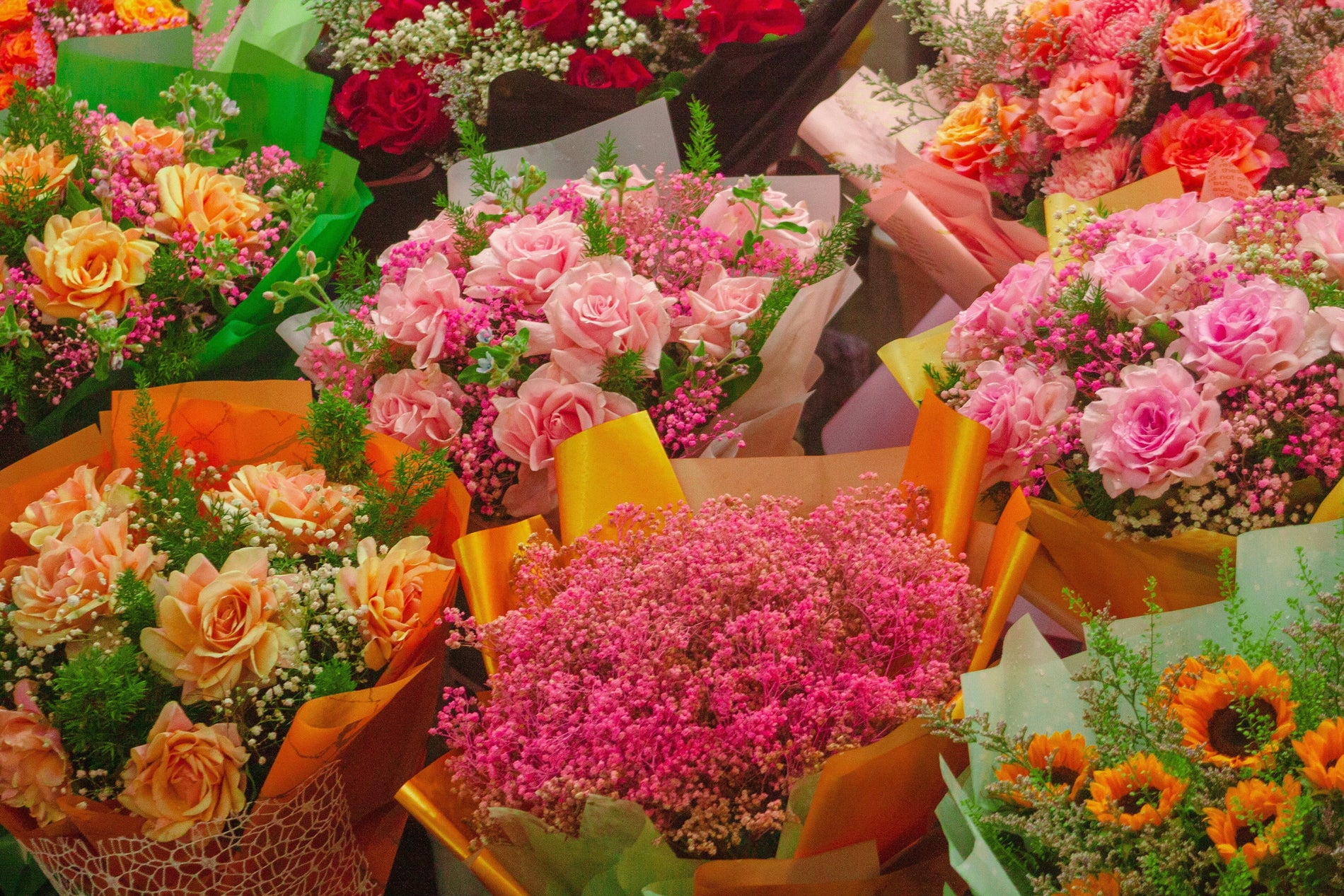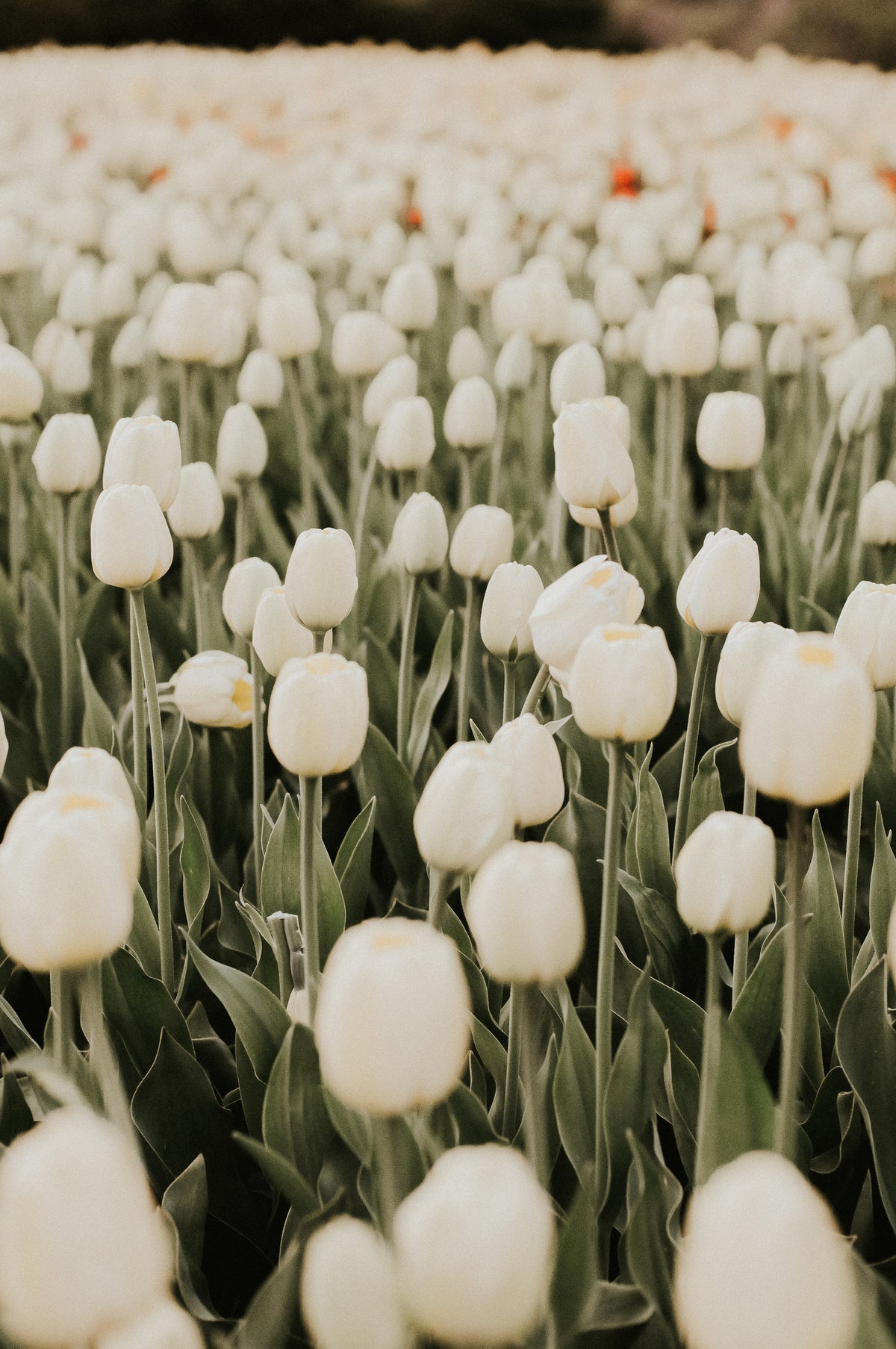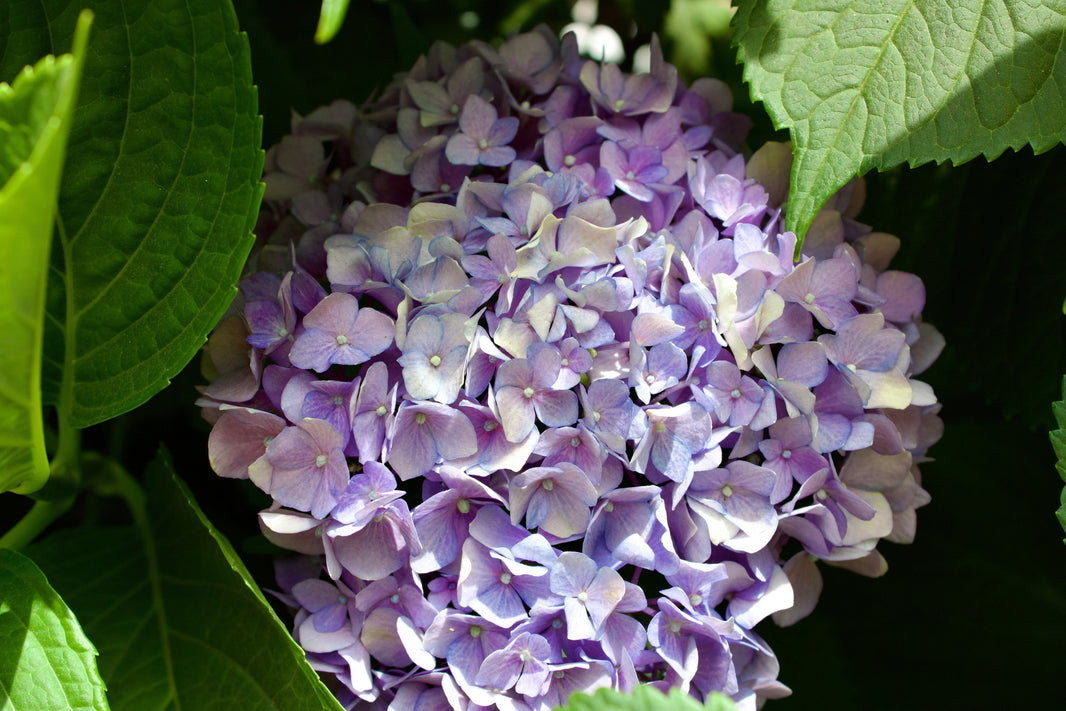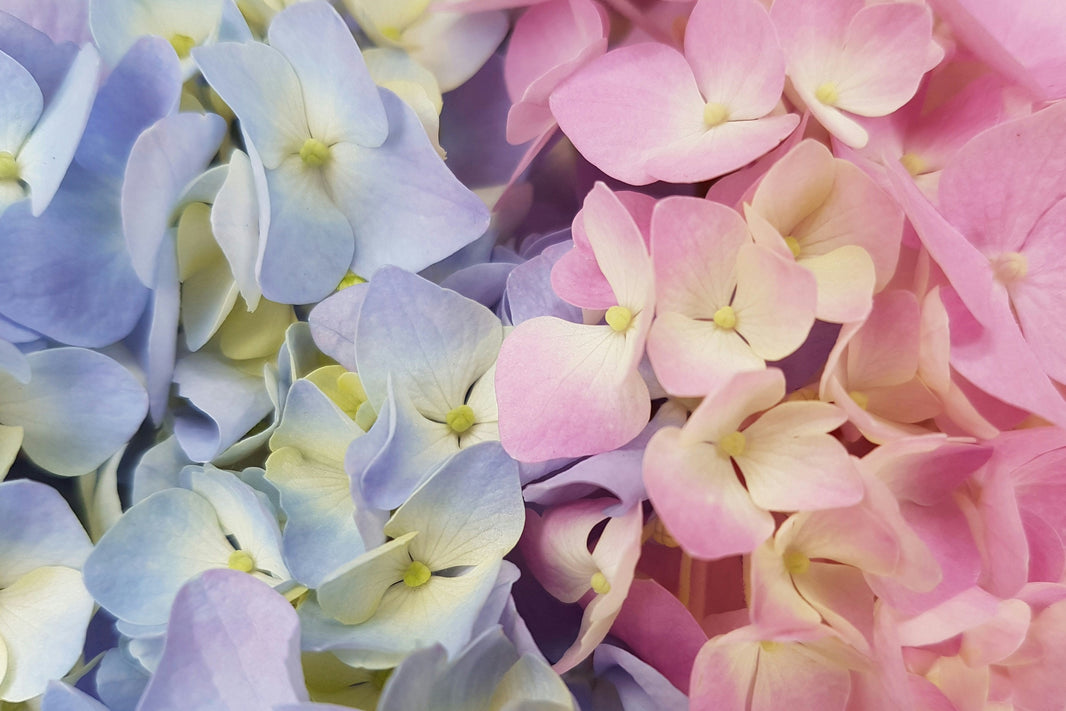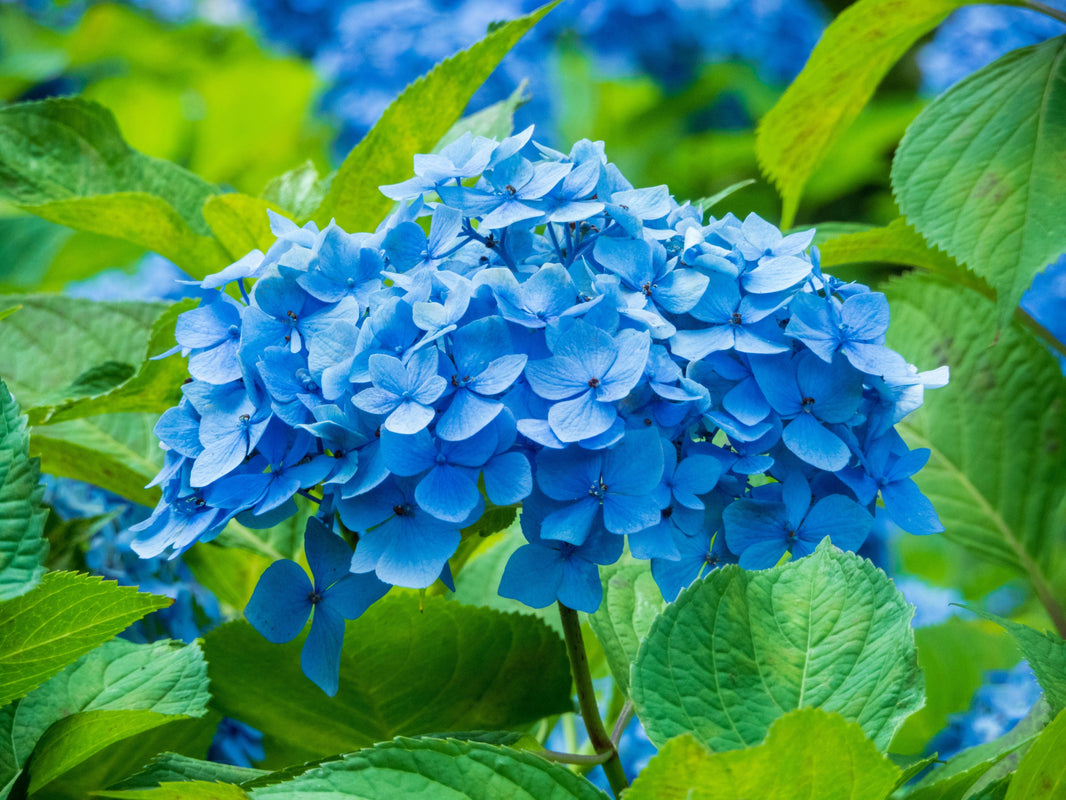Flowers have a special place in our lives, symbolizing love, celebration, and care. Not all flowers, however, are created equal, and the quality of blooms plays a significant role in how they convey feelings. Whether you're buying flowers for a birthday, anniversary, or a simple token of affection, quality matters. Grocery stores have become a popular destination for buying flowers, offering convenience and affordability for customers. Yet, with increasing options for wholesale flowers, many wonder if grocery chains truly deliver the best quality.
Supermarkets have evolved significantly over the years, from offering basic grocery essentials to curated aisles of fresh flowers. These floral sections now aim to capture the shopper’s attention with vibrant bouquets and unique arrangements. But the question remains, do they match up to the quality provided by specialized sources such as florists or wholesale sellers?
Wholesale flowers, on the other hand, have emerged as a game-changer in the floral industry. By skipping the middleman and sourcing directly, wholesalers often provide fresher, more long-lasting blooms. These flowers tend to maintain their vivid colors and structure longer than many of the options available at grocery stores. But are they practical for the average customer?
The rise of online flower businesses like WholesaleFlowers.net has made high-quality blooms more accessible than ever before. These platforms bridge the gap between professional florists and customers, offering "flowers in bulk" at competitive prices. They also offer transparency about flower sourcing, which isn’t always as clear at grocery stores.
Despite these advantages, supermarket flowers aren’t without their merits. They appeal primarily to last-minute shoppers or those seeking a no-hassle option. With many chains now stepping up their game in terms of sustainability and design, supermarkets have started to position themselves as formidable competitors to wholesale options.
Choosing between supermarket flowers and wholesale flowers requires evaluating multiple factors, including cost, longevity, availability, and overall quality. Each option has its perks and downsides, so understanding these details helps make informed decisions.
This blog will take you on a detailed exploration of grocery flower sections, comparing their quality and features to wholesale flower options. Throughout the sections, we’ll look closely at which choice offers the best grocery flowers, highlighting factors such as variety, pricing, and sustainability.
Freshness – A Pillar of Flower Quality
Freshness is an undeniable factor when it comes to judging flower quality. Everyone wants blooms that stay radiant and last as long as possible. Supermarkets are a convenient source, but how do they ensure the freshness of their flowers compared to wholesalers?
At many grocery stores, flowers are displayed in open refrigerators located close to the checkout aisles or produce sections. While this visibility is great for encouraging impulse buys, it doesn’t necessarily provide the ideal storage environment for the flowers. Most grocery stores rely on weekly shipments of pre-packaged bouquets, which may already have been out of optimal conditions for days before reaching the customer.
Wholesale suppliers typically offer flowers in their freshest possible state. By sourcing directly from growers and avoiding middlemen, wholesale flowers often spend less time in transit. WholesaleFlowers.net, for instance, works directly with flower farms, ensuring the shortest possible supply chain. This results in blooms that often outlast grocery store offerings by several days or more.
Another issue with grocery store flowers is the limited selection of fresh varieties. While they might look appealing at first glance, their freshness can’t always be guaranteed. Wilted edges or browning petals often appear on supermarket bouquets, especially late in the week when newer shipments haven’t arrived yet.
Wholesale sources also prioritize cold chain logistics, a critical aspect of maintaining freshness. From the moment the flowers are picked, they’re kept in carefully controlled temperatures to preserve their hydration and structure. This is a measure lacking in many supermarkets, where flowers can experience temperature fluctuations.
Maintenance is another challenge for supermarket floral sections. Employees often juggle responsibilities and might not have the expertise to ensure hydration and care for the flowers. Wholesale flowers, however, often come with instructions on proper care to extend their lifespan post-purchase.
For customers who want the freshest possible blooms, evaluating where and how flowers are sourced can make all the difference. While grocery store flowers may be a convenient pick-me-up, wholesale flowers stand out for their superior freshness.
Lastly, wholesale flowers are harvested closer to the customer's order date, unlike pre-made bouquets, which often sit on store shelves. This ensures that customers get freshly harvested, long-lasting flowers that bring timeless beauty to their spaces.
Variety and Availability
When it comes to variety, grocery stores and wholesale suppliers take vastly different approaches. Supermarkets offer curated selections, while wholesale suppliers like WholesaleFlowers.net boast extensive inventories for every occasion. Which option wins?
Grocery stores often stock basics. You’ll find roses, carnations, daisies, and seasonal blooms like tulips or poinsettias. These are pre-arranged into bouquets, making them quick and attractive options for customers. However, while these flowers serve general purposes, they lack the depth of variety you might find with a specialized supplier.
Wholesale sources, on the other hand, cater to diverse floral needs. Whether someone is planning a wedding, corporate event, or special DIY arrangement, wholesalers can provide exotic flowers, rare species, and bulk orders. WholesaleFlowers.net, for instance, offers "flowers in bulk" that include everything from traditional roses to rare orchids, tropical flowers, and filler greens.
Another limitation at supermarkets is the repetition in displays. Frequent shoppers can find themselves looking at the same floral options week after week. Wholesale suppliers combat this by rotating their stock based on the season, ensuring constant freshness and diversity. Customers looking for unique or custom arrangements often prefer wholesale selections for this reason.
Customization is also an area where supermarkets may fall short. While they offer pre-made bouquets ideal for casual gifting, they rarely cater to tailored or creative floral needs. Wholesale sources often allow customers to choose specific flower types, colors, and quantities.
Seasonal availability is another consideration. Grocery stores usually focus on mainstream flowers that are widely popular throughout the year. For special occasions or off-season blooms, wholesale suppliers are better equipped to meet unique demands. Whether it’s early-spring peonies or winter amaryllis, wholesalers offer year-round sourcing options.
Another advantage of sourcing from wholesalers is the flexibility to purchase in various quantities. Grocery chains generally sell individual bouquets or small bunches. Wholesale options, however, thrive when customers need larger quantities without compromising quality or selection.
The online presence of wholesale suppliers like WholesaleFlowers.net makes variety even more accessible. Through their catalogs, customers can browse vast options tailored to their preferences, from rustic aesthetic blooms to vibrant palettes for festive events.
Lastly, the wholesalers’ ability to mix traditional offerings with specialty varieties makes their selection unmatched. Whether you're hosting a dreamy garden wedding or a charming tea party, wholesale sources ensure you'll find exactly what you need without settling for less.
Pricing – Affordability vs. Value
Pricing plays a big role in where people buy their flowers. Grocery stores are often seen as budget-friendly, but how does their pricing stack up against wholesale flowers? The answer lies in understanding the big picture behind flower costs.
At first glance, supermarket flowers seem cheaper than their wholesale counterparts. A small bouquet of roses or mixed blooms can cost as little as $10 to $20 at many chain stores. These arrangements are pre-packaged and marketed for maximum convenience, making them an attractive option for shoppers on a tight budget. However, the hidden costs start to show once you evaluate the actual flower quality and longevity.
Wholesale flowers, on the other hand, often require a larger upfront investment. For instance, a bulk order of roses or exotic flowers from platforms like WholesaleFlowers.net might exceed the cost of a single grocery bouquet. Yet, the value lies in the bigger picture. The blooms are fresher, more vibrant, and last several days longer than those from grocery stores, reducing waste and offering a better overall experience.
The perceived cost-effectiveness of grocery store flowers diminishes upon closer inspection. These bouquets often come with additional fillers, such as abundant greenery or low-cost flowers, to make arrangements look fuller. Unfortunately, this practice often compromises the overall aesthetic value of the arrangement. Meanwhile, wholesale sources offer transparency in what you get, with options to customize your selections based on personal preferences.
Another reason for the price gap is that supermarket chains operate on volume and convenience. While they offer competitive pricing, the flowers are generally sourced in bulk and prioritized for fast turnover. This might explain why cheaper grocery roses wilt within days, leaving buyers less satisfied with their purchase compared to wholesale blooms that stay lively for longer.
Promotions and discounts are other areas where wholesale suppliers often shine. Platforms like WholesaleFlowers.net frequently run seasonal deals or bulk discounts, making high-quality blooms more affordable for big occasions. While supermarkets do offer occasional floral sales, the variety and savings aren’t as extensive as what wholesalers provide.
Supermarkets also include the cost of convenience in their flower pricing. A shopper can walk into the grocery store, grab a bouquet, and be out within minutes. This quick access adds perceived value, but it doesn’t necessarily equate to long-term satisfaction with the purchase.
Lastly, when it comes to special events like weddings or corporate parties, buying "flowers in bulk" from wholesalers significantly reduces cost per stem compared to buying smaller pre-made arrangements from a grocery chain. WholesaleFlowers.net, in particular, offers competitive pricing for large-scale orders, proving ideal for anyone with bigger floral needs.
By carefully evaluating both options, it becomes clear that while supermarket flowers cater to immediate affordability, wholesale flowers offer unmatched value in terms of quality, longevity, and variety. Understanding pricing structures and what they include helps you make smarter flower-buying decisions.
Sustainability in Floral Sourcing
Sustainability has become a vital consideration for customers trying to make ethical and environmentally conscious purchases. How do grocery stores compare to wholesale suppliers when it comes to sustainable sourcing?
Many grocery stores have taken steps to promote sustainability by displaying third-party certifications such as Rainforest Alliance or Fair Trade on their floral offerings. These labels indicate that the flowers were grown and shipped using environmentally friendly practices. However, such markings are not consistently applied across all stores, nor do they cover the entire selection. Customers often need to hunt for a bouquet that meets these ethical standards.
Wholesale flower suppliers such as WholesaleFlowers.net, however, are increasingly committed to sustainable sourcing practices. They work closely with farms and growers to ensure eco-friendly methods are part of every step, from cultivation to delivery. This includes minimizing water usage, reducing harmful pesticides, and using biodiverse growing techniques.
Transportation plays a significant role in a flower's carbon footprint. Supermarkets often rely on centralized distribution centers for logistics, where flowers might travel long distances from grower to store. These additional transit points can significantly increase carbon emissions. Wholesale flowers, by contrast, often come directly from growers to the customer, drastically reducing unnecessary shipping layers.
Seasonality is another aspect tied to sustainability. Grocery store flowers are typically limited to popular species, many of which may not be in season locally. Out-of-season flowers often come from far-away regions, increasing environmental costs. Wholesale suppliers, however, often prioritize seasonal availability, allowing customers to choose blooms that are grown closer to home and requiring less transportation.
One innovative practice adopted by some wholesale suppliers is the use of sustainable packaging materials. Unlike the plastic wraps that dominate supermarket bouquets, many wholesalers opt for compostable or biodegradable wrappings. Platforms like WholesaleFlowers.net also emphasize eco-friendly packing solutions that minimize waste.
There’s also the question of overproduction. Supermarkets often order large quantities of flowers, some of which may never be sold and ultimately end up as waste. Wholesale suppliers, particularly online ones, usually match production more closely to demand, preventing unnecessary surplus and contributing to more sustainable business practices.
Investing in sustainably sourced flowers not only benefits the planet but also improves the quality of blooms. Flowers grown under responsible conditions tend to thrive longer due to the health of the soil and environment they were cultivated in. This means that wholesale flowers often aren’t just better for the Earth but also for your home.
Finally, customers concerned with sustainability often find better transparency with wholesale options. Detailed product pages from platforms like WholesaleFlowers.net provide insight into growing conditions, certifications, and eco-friendly commitments, giving buyers the confidence to make an informed choice.
Considering these factors, wholesale flowers clearly lead in terms of sustainability. For eco-conscious buyers, opting for products from responsible suppliers makes a significant difference in reducing environmental impact while enjoying fresher, ethically sourced blooms.
Customer Reviews Tell the Story
Customer reviews provide invaluable insights into flower quality since they reveal real experiences from buyers. When comparing grocery flowers to wholesale options, customer feedback tells a compelling story. Shoppers often turn to reviews to decide where to get the best grocery flowers, but findings often emphasize the merits of wholesale suppliers.
Grocery store flowers generally receive mixed reviews. Buyers appreciate their accessibility and the ease of grabbing a bouquet while running other errands. However, complaints often arise about the longevity of the blooms. Many customers report that supermarket flowers begin to wilt or lose vibrancy within a few days, which detracts from the overall value of the purchase.
Wholesale flowers, in contrast, typically garner much higher praise from their buyers. Customers rave about the freshness and vivid appearance of the flowers they receive. Wholesale suppliers like WholesaleFlowers.net often exceed expectations, with flowers arriving in pristine condition. Reviews frequently highlight the dramatic difference in lifespan between wholesale blooms and supermarket alternatives.
Another common theme in reviews is the range of options available. Supermarket selections may serve the everyday buyer looking for simplicity, but they often fall short for customers seeking specialty bouquets or unique floral arrangements. Conversely, wholesale suppliers shine in this area. Platforms like WholesaleFlowers.net offer extensive catalogs, which reviewers consistently celebrate as a highlight.
The experience of purchasing also diverges between the two options. Supermarket floral sections are self-serve, leaving shoppers to make their best guesses about flower care and quality. Reviews often mention that grocery store staff may not have the expertise to provide detailed guidance. Wholesale sources improve this experience by offering detailed care instructions and customer support, ensuring buyers know how to make the most of their purchase.
Price transparency also impacts customer satisfaction. Supermarket buyers sometimes feel they pay a premium for convenience, especially when price tags don’t seem to match the lifespan or quality of the flowers. This contrasts sharply with wholesale flower reviews, where customers appreciate clear pricing structures and the value that comes with buying flowers in bulk.
Online customer reviews amplify the reputation of suppliers like WholesaleFlowers.net. Many references extol their ability to handle large weddings and events without sacrificing quality. Customers repeatedly state that wholesale sources provide professional-level service at surprisingly affordable costs, making them a go-to option for anything from milestone celebrations to casual arrangements.
Finally, when it comes to recommendations, wholesale flowers reign supreme. Frequent reviewers often share photos and stories of their lasting satisfaction, urging others to try wholesale suppliers for their next purchase. Such word-of-mouth testimonials carry weight, reaffirming wholesale flower quality over grocery store alternatives.
Convenience in Flower Purchases
Convenience is a huge factor when deciding where to buy flowers. Grocery stores position themselves as the ultimate resource for convenience, while wholesale suppliers like WholesaleFlowers.net provide a different kind of ease through online options and delivery.
Supermarkets have a clear advantage in convenience when you're already there for other errands. Spotting a floral section on your way to the register makes grabbing a bouquet effortless. That said, what you save in convenience often translates to compromises in quality. Pre-packaged bouquets are a simple choice but lack the customization wholesale sources can offer.
Wholesale flowers might not give you the same immediate gratification, but they excel in convenience regarding customization and delivery. Platforms like WholesaleFlowers.net allow buyers to browse vast options online, place detailed orders, and have flowers arrive directly at their doorstep. This approach eliminates the guesswork of choosing from limited supermarket offerings.
Another aspect of convenience revolves around availability. Grocery stores restock their flowers weekly or bi-weekly, which means there’s no guarantee you’ll find what you’re looking for. Wholesale suppliers eliminate such unpredictability; buyers can pre-order specific blooms and quantities, ensuring availability even during high-demand seasons.
Preparing for big events often exposes cracks in supermarket convenience. Planning a wedding or business event requires more than a few pre-made bouquets. Relying on grocery stores means making multiple trips and settling for mismatched arrangements. Wholesalers resolve this issue with bulk options. With "flowers in bulk" delivered in one shipment, event planning becomes significantly easier.
Beyond brick-and-mortar convenience, wholesalers extend unique benefits like assistance with flower arrangement tutorials and care guides. This educational approach isn’t something supermarkets typically offer, making wholesale purchases more user-friendly for new customers.
Timing also plays a big role in convenience. While grocery stores cater to last-minute shoppers, the freshness of their flowers doesn’t always match up to expectations. Wholesale flowers require more lead time since they’re sourced fresh, yet the payoff lies in their superior longevity and vibrant appearance.
Ultimately, the definition of convenience differs for individuals. Supermarkets make quick purchases seamless but often fall behind when it comes to satisfying long-term floral needs. WholesaleFlowers.net and similar platforms lean on logistical planning, delivery options, and professional-grade quality to win over customers interested in balancing ease with excellence.
Meeting Event-Specific Floral Needs
When planning significant events, flowers are more than just decoration; they set the tone and elevate the experience. Whether it’s a wedding, corporate gala, or milestone birthday, selecting the best flowers becomes critical. Supermarkets and wholesale suppliers cater to these needs differently, appealing to contrasting buyer priorities.
Supermarkets, while convenient, often lack flower varieties suited for large-scale events. Their stock is designed for everyday purchases, leaving event planners with few options for creating tailored themes. Wholesale suppliers like WholesaleFlowers.net, however, specialize in large orders and boast an impressive variety to meet any design vision.
Customization is another area that supermarkets fall short of when catering to an event’s specific needs. Pre-packaged bouquets dominate grocery store selections, leaving event planners with little flexibility to match their color palettes or overall designs. Wholesale suppliers counter this with endless combinations of seasonal flowers, exotic blooms, and unique fillers to complete a customized design.
Budget management is crucial for event planning. Buying flowers individually from a supermarket can lead to unexpectedly high costs, especially when quantity is a concern. Wholesale options shine in this regard with pricing structures built around volume. Buying "flowers in bulk" results in much lower per-stem costs, saving customers money without compromising quality.
Logistics also play a role. Supermarkets rely on what’s available in-store, meaning event planners have to visit multiple locations to collect everything they need. Wholesale flowers can be ordered and delivered directly to the venue or pre-event location, simplifying logistics and reducing stress for planners.
Specialty services also tilt the balance towards wholesale suppliers. For instance, WholesaleFlowers.net offers curated packages for weddings, corporate needs, and themed parties, taking much of the guesswork out of choosing the right blooms. Supermarkets can’t provide this level of event-oriented service due to the inherent limitations of their retail model.
Wholesale suppliers’ ability to meet strict timelines is yet another advantage. Flowers are grown to order, guaranteeing freshness upon arrival. This is especially important for weddings or photo-heavy events, where each bloom needs to appear picture-perfect.
Finally, testimonials from event planners often highlight the seamlessness of ordering wholesale flowers. They praise these suppliers for elevating their décor with vibrant, fragrant, and high-quality blooms, which supermarkets rarely replicate. From grand bouquets to intricate centerpieces, wholesale flowers stand out as the ultimate choice for event-specific needs.
Aesthetic Value of Flower Arrangements
The beauty of flowers doesn’t just lie in their quality but also in how they’re presented. Here, aesthetic value becomes a key factor in comparing supermarket flowers to those from wholesale suppliers. Visual appeal drives much of the purchasing decision, so how do these two options stack up?
Supermarket flowers are generally pre-arranged into ready-made bouquets, placed in clear plastic wraps or cheap vases for easy accessibility. While these arrangements are designed to catch the eye, they often lack creativity and personalization. Many bouquets rely on a standard formula, with abundant greens or filler flowers used to add volume without much thought to artistic balance.
Wholesale flowers, on the other hand, offer a canvas for creativity. Platforms like WholesaleFlowers.net provide buyers with a vast selection, empowering them to create their own arrangements tailored to specific styles or occasions. Whether aiming for a rustic charm or a modern, elegant design, wholesale flowers allow greater control over every aesthetic detail.
Another downside of supermarket arrangements is the uniformity. Regular shoppers may notice the same designs week after week, with only minor alterations based on seasonal availability. Contrast this with wholesale suppliers, who often provide a rotating inventory of unique blooms, specialty flowers, and complementary greens that elevate any floral creation into art.
Wholesale flowers also cater to trends and themes, making them ideal for those crafting arrangements with a specific aesthetic in mind. For instance, weddings and formal events often require bespoke designs that can’t be achieved with store-bought bouquets. Event planners and florists alike value wholesale options for the variety and freedom they provide.
The visual freshness of wholesale flowers also outshines that of grocery bouquets. Blooms from WholesaleFlowers.net retain vibrant colors and perfect petal shapes longer due to superior care and storage practices. This not only enhances their overall appearance but also ensures they look stunning in any setting.
Supermarkets tend to stick to safe floral choices like roses, daisies, and carnations, which are broadly appealing but lack uniqueness. Wholesale suppliers offer access to exotic varieties, tropical species, and rarer blooms, helping customers create arrangements that stand out. These distinctive options bring added aesthetic value that grocery floral sections can rarely achieve.
Even packaging plays a role in aesthetic value. Wholesale flowers often arrive in minimal yet elegant wrappings that allow the flowers’ natural beauty to take center stage. This contrasts with supermarkets’ clunky plastic packaging, which can give even high-quality flowers a cheap appearance. For buyers aiming to impress, wholesale flowers provide an unmistakable edge in appearance.
Comparing to Florists
Florists have long been the gold standard for flower arrangements. Yet, as supermarkets and wholesale suppliers gain traction, some wonder whether florists are still the best option for quality and creativity. To compare all three fairly, we must examine what each brings to the table.
Supermarkets are typically geared toward quick, no-fuss purchases. Their floral arrangements, while convenient and budget-friendly, are a far cry from the professionally curated designs you’d receive from a florist. Supermarket flowers also tend to focus on generic offerings, with little emphasis on artistry or customization.
Florists, meanwhile, specialize in bespoke arrangements. They leverage their expertise in color theory, flower pairing, and visual composition to achieve stunning results. This makes them ideal for anyone willing to invest in high-quality, hand-crafted designs. However, florists’ services often come at a premium, which means their flowers aren’t accessible to everyone.
Wholesale suppliers like WholesaleFlowers.net occupy a middle ground. While they don’t arrange flowers for customers, their wide selection allows buyers to assemble professional-grade creations on their own. For DIY enthusiasts and event planners, wholesale flowers provide the tools needed to match florists’ aesthetic standards at a fraction of the cost.
Another significant difference lies in sourcing. Florists often have longstanding relationships with high-quality growers, ensuring access to prime flowers. Wholesale suppliers share this advantage, often working directly with the same growers or even bypassing middlemen to secure fresher blooms. Grocery stores, on the other hand, rarely have these relationships, resulting in less freshness.
Time is another consideration. Florists take the stress out of arrangement but require planning and lead time, especially for custom orders. Supermarkets excel in immediacy, though their options are limited and may lack the wow factor. Wholesale suppliers balance both, offering fresh flowers shipped to your door quickly, enabling same-day creativity if needed.
Florists also excel in adding finishing touches, such as luxurious wrapping and decorative vases, which supermarkets hardly attempt. Wholesale flowers bridge the gap by offering add-ons like vases and customized greenery, though these elements still rely on the buyer’s input for the final design.
Cost is typically the deciding factor. Florists deliver impeccable artistry but often charge high fees for their expertise and service. Supermarkets are the budget choice, but their repetitive designs and lack of creativity can disappoint. Wholesale flowers enable buyers to achieve florist-level quality without exceeding their budgets, making them the most versatile option.
Ultimately, while florists are unmatched in tailored service and artistry, wholesale suppliers like WholesaleFlowers.net prove to be a worthy alternative for those who value freedom, affordability, and variety.
The Verdict and Final Thoughts
When it comes to choosing the highest quality flowers, both supermarkets and wholesale suppliers serve specific purposes. However, for those prioritizing freshness, variety, and value, wholesale flowers ultimately emerge as the superior choice.
Supermarkets appeal to shoppers seeking convenience, offering quick and inexpensive floral solutions. Yet, their flowers often fall short on lifespan and exclusivity. Over time, grocery bouquets frequently lose their allure due to repetitive designs and compromised freshness. This makes them a good fit for last-minute gifts but leaves much to be desired for special occasions or aesthetic aspirations.
Wholesale suppliers like WholesaleFlowers.net, by contrast, bring a wealth of options perfect for DIY enthusiasts, event planners, or anyone looking for customized beauty. Their direct sourcing guarantees impressive quality, and bulk purchasing options make them affordable even for large-scale needs. It’s no wonder buyers rave about how wholesale flowers blend cost-efficiency with elegance.
Sustainability is another dimension where wholesale flowers take the lead. With eco-friendlier methods in farming, harvesting, and transportation, platforms such as WholesaleFlowers.net strike a thoughtful balance between ethical practices and delivering stunning blooms.
Lastly, the appeal of arranging your own flowers, even when sourcing flowers in bulk from WholesaleFlowers.net, taps into personal creativity. These blooms are tailored for occasions big and small, transforming ideas into reality and surpassing expectations every time they’re used.
If quality, variety, and impact matter most, wholesale flowers provide an unmatched floral experience. From selecting the freshest blooms to enjoying the creative process, they offer value supermarkets simply can’t replicate.
By merging affordability, quality, and creativity, wholesale suppliers like WholesaleFlowers.net redefine what it means to deliver stunning, lasting floral solutions. Whether you’re planning a wedding or just adding a vibrant touch to your living space, opting for wholesale flowers ensures every petal is a source of genuine delight.


